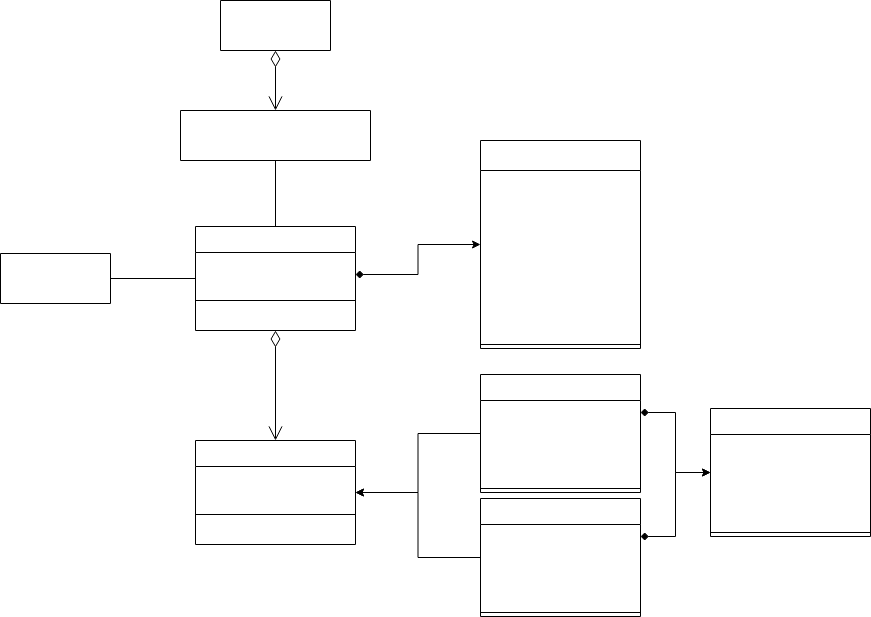17 releases (major breaking)
| new 16.1.0 | May 2, 2025 |
|---|---|
| 15.1.0 | Feb 25, 2025 |
| 14.1.0 | Oct 21, 2024 |
| 13.1.0 | Jul 15, 2024 |
| 1.1.0 | Oct 27, 2023 |
#1 in #encointer
7,736 downloads per month
215KB
4.5K
SLoC
pallet-encointer-bazaar
This crate is part of Encointer blockchain logic, built on substrate / polkadot-sdk
For high-level technical as well as use case documentation, please refer to our book
design
this is a design document WIP and does not reflect the current implementation at all times
scope
The encointer bazaar shall
- follow the GoodRelations vocabulary for e-commerce where possible
- be compatible with schema.org json
- LocalBusiness many shops may already have prepared this for google maps anyway
- Product Any offered product or service. For example: a pair of shoes; a concert ticket; the rental of a car; a haircut; or an episode of a TV show streamed online.
- Offer / Demand with a price and delivery method
custom rpc methods
For good API performance and dev experience, encointer nodes shall offer handy queries for bazaar. Usually, queries only concern one community
bazaar_getMyLocalBusinesses(who: AccountId)
returns: JsonArray<local_business: AccountId>
get all businesses controlled by who. Needs to iterate through all proxy accounts to see which ones delegate to who
bazaar_getLocalBusinesses(cid: CommunityIdentifier)
returns: JsonArray<(local_business: AccountId, json: url)>
get all business accounts for a specific community with their metadata url
bazaar_getOfferings(cid: CommunityIdentifier, local_business?: AccountId, since?: BlockNumber)
returns: JsonArray<(offering: url)>
optional:
- local_business: only query offerings for that business
- since: allows to filter by updated block height to query fresh entries only
Use Cases
- Business Management
- create business
- edit business
- delete business
- Offering Management
- create offering
- edit offering
- delete offering
- View (RPC)
- businesses per community
- offerings per community
- offerings per businesses
Proposed Storage Model
BusinessRegistry: double_map(CommunityId, BusinessAccountId) -> (business_url, last_oid)
OfferingRegistry: double_map((CommunityId, BusinessAccountId), OfferingId) -> (offering_url)
BusinessAccountId is the public key of an anonymous proxy aka the business. The described tuples/triples are wrapped in value type objects.
Dispatchables Pseudo Code
createBusiness(CommunityId, business_url) {
var BusinessAccountId = new AnonymousProxy(sender);
BusinessRegistry.insert(CommunityId,
BusinessAccountId,
(business_url, 1, currrent_block_number));
}
updateBusiness(CommunityId, BusinessAccountId, new_business_url) {
verify(BusinessAccountId, sender);
BusinessRegistry.mutate(CommunityId, BusinessAccountId, (new_business_url, counter, current_block_number));
}
deleteBusiness(CommunityId, BusinessAccountId) {
verify(BusinessAccountId, sender);
BusinessRegistry.remove(CommunityId, BusinessAccountId);
OfferingRegistry.remove_prefix((CommunityId, BusinessId));
}
createOffering(CommunityId, BusinessAccountId, offering_url) {
verify(BusinessAccountId, sender);
var OfferingId = BusinessRegistry.get(CommunityId, BusinessAccountId).counter++
OfferingRegistry.insert((CommunityId, BusinessAccountId), OfferingId, (offering_url, block_number));
return OfferingId;
}
updateOffering(BusinessAccountId, OfferingId, new_offering_url) {
verify(BusinessAccountId, sender);
OfferingRegistry.mutate((CommunityId, BusinessAccountId), OfferingId, (BusinessAccountId, new_offering_url));
}
deleteOffering(BusinessAccountId, OfferingId) {
verify(BusinessAccountId, sender);
OfferingRegistry.remove((CommunityId, BusinessAccountId), OfferingId);
}
RPCs
viewBusinesses(cid) {
return BusinessRegistry.get(cid);
}
viewOfferings(cid) {
return BusinessRegistry.get(cid).flatMap(bid -> OfferingRegistry.get(bid));
}
viewOfferings(bid) {
return OfferingRegistry.get(bid);
}
Performance Considerations
The proposed implementation of viewOfferings for a certain business has O(n) complexity. It should only be evaluated through a off-chain rpc.
complexity Vec vs map for sets:
| operation | vec |
map |
|---|---|---|
| membership check | DB Reads: O(1) Decoding: O(n) Search: O(log n) | DB Reads: O(1) |
| update | DB Writes: O(1) Encoding: O(n) | DB Reads: O(1) Encoding: O(1) DB Writes: O(1) |
| iterate | DB Reads: O(1) Decoding: O(n) Processing: O(n) | DB Reads: O(n) Decoding: O(n) Processing: O(n) |
iteration complexity (where vec would be better) is irrelevant because the bazaar pallet doesn't iterate
obviously, map scales better in terms of dispatchable weight for large n with no disadvantage for large number of calls with small n. Moreover, weight is constant, irrespective of n
the mobile app or web interface will usually fetch the entire set for a given cid, therefore Vec would be lighter to use. However, if we add a custom rpc api to fetch these sets, we can offer a convenient API while only putting a little more load on the API node
Dependencies
~24–39MB
~658K SLoC
